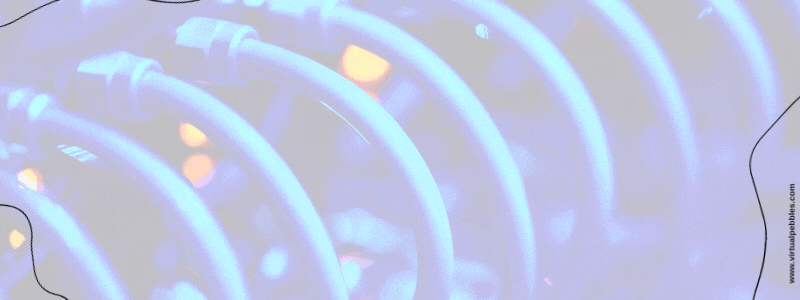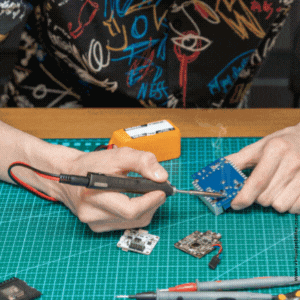Announcement
Get Ready for INDUS CUP 2K26! | Dates: 5–10 January 2026 | Stand a Chance to Win Cash Prizes up to ₹10,00,000!...Read more Get Ready for INDUS CUP 2K26! | Dates: 5–10 January 2026 | Stand a Chance to Win Cash Prizes up to ₹10,00,000!
We are excited to announce the Indus Hackathon 2025, an exhilarating one-day event organized by the CSE Department of Indus University....Read more We are excited to announce the Indus Hackathon 2025, an exhilarating one-day event organized by the CSE Department of Indus University.
26th ISTE Faculty Annual State Convention will be held at Indus University on April 27, 2023....Read more 26th ISTE Faculty Annual State Convention will be held at Indus University on April 27, 2023.
Get Ready for INDUS CUP 2K26! | Dates: 5–10 January 2026 | Stand a Chance to Win Cash Prizes up to ₹10,00,000!...Read more Get Ready for INDUS CUP 2K26! | Dates: 5–10 January 2026 | Stand a Chance to Win Cash Prizes up to ₹10,00,000!
We are excited to announce the Indus Hackathon 2025, an exhilarating one-day event organized by the CSE Department of Indus University....Read more We are excited to announce the Indus Hackathon 2025, an exhilarating one-day event organized by the CSE Department of Indus University.
26th ISTE Faculty Annual State Convention will be held at Indus University on April 27, 2023....Read more 26th ISTE Faculty Annual State Convention will be held at Indus University on April 27, 2023.

Electrical Engineers (EE) and Electronics and Communication Engineers (ECE) are considered to be warriors who stand at the frontlines of any modern growth that happens in a society. They do this together with each other, in coordination with the different sectors of Engineering. Electrical and Electronic and Communication Engineers' works do at times overlap majorly in the real world, and so do their courses offered at universities. Keep reading as we examine to what extent these two streams overlap and the differences between them and their courses ahead, including their university courses and placement and career opportunities. This article will best help you understand which course works for you and your future.

Electrical Engineering is an electrical branch that extensively revolves around the concepts of electronics, electricity, and electromagnetism. They are trained to develop and design various electrical equipment that makes life easier. They work in major industries, operating and maintaining large equipment, which is essential for the smooth functioning of the company. This includes industrial machines, computer chips, power plants and various kinds of engines for multiple sectors.
The specialities an electrical engineer is skilled in covering include speech, acoustics, electromagnetic signal processing, high-end automobile technology, remote sensing, computers and ferro-electronics.
An Electronics and Communications Engineer (ECE) works in the research and design of various electrical systems. This also includes developing and testing them to upgrade different industry sectors appropriately. Electronics and Communications engineers mainly handle the systems that enable an industry or company to communicate with one another smoothly. They either manufacture or overlook and maintain communications and broadcast equipment for different industries. The stream is specialized in teaching the different concepts of analog transmission, microprocessors, SSD's, integrated circuits, digital and analog communication, satellite communication, wave engineering and antennae.
The specialities an electronics and communication engineer is skilled in involve manufacturing and developing electronic devices, circuits, and communications equipment.


While it may seem like an Electrical Engineer and an Electronics and Communications Engineer often do the same type of work, the differences seen in the position taken up by these engineers do exist, even if it overlaps in terms of scope.
Electrical engineering is a broad field which aims to provide its students with the basic knowledge of electronics engineering. This is the understanding of electricity and how to use it to research and develop newer machines and equipment. This includes the transmission and storage of electricity as well.
Eligibility Criteria for Electrical Engineering
The eligibility criteria for Electrical Engineering stand at a minimum aggregate of 45% in Physics, Chemistry & Mathematics theory and practical exam in H.S.C. of any boards.
4 Years (8 Semesters)
Syllabus for Electrical Engineering
The syllabus for Electrical Engineering covers the knowledge of
Calculus, Art of Programming, Analog and Digital Electronic Circuits, Network Analysis, Electrical Transducers, ICT Tools, DC Transformers, Control System Engineering, Electromagnetics, Microprocessor and Micro controller, Traction Systems Testing, Commissioning and Maintenance of Electrical Equipment, Digital Signal Processors, Environment and Energy Studies, Thermal and Hydraulic, Electronic Converters, Power System Operation and Control Electrical Machine Design.
Electronics and Communication Engineering is much more of a subject-focused course, which puts more attention to the workings and development of systems which enable an industry for smoother communications. Thus, the subjects taught in this course focus more on improving the technology and systems that are used for communication which has a basis of electrical signals for operation.
Eligibility Criteria for Electronics and Communication Engineering
The eligibility criteria for Electronic and Communication Engineering stand at a minimum aggregate of 45% in Physics, Chemistry & Mathematics theory and practical exam in H.S.C. of any boards.
- Course Duration
4 Years (8 Semesters)
Syllabus for Electronics and Communication Engineering
The syllabus for Electrical and Communication Engineering covers the knowledge of Basic Electronics, Programming in C and Data structures, Computer Programming Laboratory, Analog Electronic Circuits, Signals & Systems, Linear ICs & Applications, Logic Design, Digital Communication, Digital Signal Processing, Information Theory & Coding, Fundamentals of HDL, Antennas and Propagation, Fundamentals of CMOS, Wireless Communication, Computer Communication Networks, Optical Fiber Communication and Embedded System Design.
Established in 2006, the Indus Institute of Technology and Engineering (IITE) has the vision to train and upgrade the technical skills of engineers as per the modern industry's requirements. It puts a conscious effort to look beyond the theoretical framework, understand the natural world and decipher its main concerns. The journey of IITE to transform raw talent into well-seasoned engineers has been the longest at Indus University, making it the eldest constituent institute till present-day out of all other institutes at the university.
Institute of Technology & Engineering provides a work and play environment to boost students' persona and intellect quotient throughout the academic period. While they are exposed to fieldwork, much weight is given to research and development in engineering. Students are encouraged and supported in various ways to plan and execute start-ups.


Our university proudly boasts an 88.2 percentage of total placements. The Computer Engineering and Computer Science Engineering batches of 2020-21 saw a 100 per cent placement record at IITE, followed by the Information Technology batch at 96.88 per cent. Indus University shows excellent results in providing students with the apt avenues for them to achieve and chase after their dream jobs.
Indus does not limit students' growth to academics only. We equip students with the following projects & programs to develop corporate requirements:
The faculties at Indus are encouraged to engage in research, consulting, and sponsored research. We also conduct faculty development programmes for their growth & engagement with the latest teaching techniques.
Find out more about the placements and top companies that visit Indus University to give students placement opportunities here.
Check out Electrical Engineering and Electronics & Communication Engineering to know more about these courses offered at Indus Institute of Technology & Engineering.